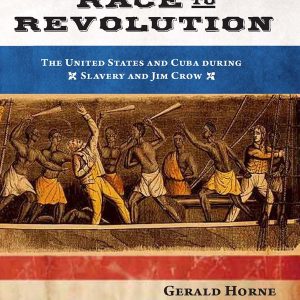BOOK REVIEW / Seth Sandronsky
Black Islanders, Mainlanders
Race to Revolution: The United States and Cuba During Slavery and Jim Crow by Gerald Horne (Monthly Review Press, June 2014) enters a crucial, if little known, period of chattel bondage and its aftermath for islanders and mainlanders. What people of African descent do and say to be free is his special focus.
Horne leaves mainstream history in the starting blocks. His book is a guided tour of people freeing themselves on both sides of the Florida Straits. He fleshes out that history. It should inform the current phase of relations between Uncle Sam and Cuba.
The book’s context flows from the centrality of the slave trade and traders to what Immanuel Wallerstein calls the “world-system.” In Spanish Florida and Cuba, antebellum and post-bellum America, skin color signifies class status, creating and challenging the dominant political economy.
Racial animus varies over place and time, as Horne makes clear. American and Spanish plantations, where the owning of human beings as beasts of burden is a source of power and wealth, sets into motion a process of blacks’ resistance.
Colonialism, imperialism and racism advance and retreat in the US and Cuba. The abolition of slavery is a major victory, as was the end of feudalism. What replaced both systems was capitalism, employers’ rental of workers’ labor services.
Horne’s narrative unfolds chronologically. Spain, England and the US clash over plunder of the African continent and the so-called new world. Slavery and the slave trade propel the projection of imperial commerce and force. US interests wax as London’s and Lisbon’s wane.
The Confederacy’s bid to secede from Washington’s orbit as Spain loses its grip on Cuba occupies no small part of Horne’s book. Though slavery ends in Cuba after its abolition stateside, the presence of armed black Cubans, including army generals such as Antonio Maceo, strikes fear and loathing into the hearts and minds of plantation owners and their political representatives. Peaceful overthrow of tyranny has its limits…

Comments are closed.